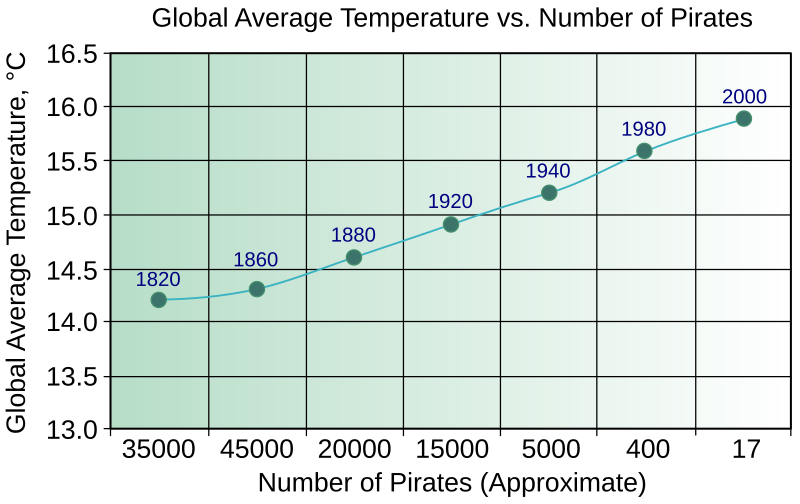Correlation Does Not Prove Causation
Public Service Announcement: Just because two things occur at the same time or are somehow related does not mean that one thing causes the other.
I’ve seen so many studies in scholarly, reputable journals (such as The Lancet) that supposedly conduct scientific research to falsely “prove” causation between two factors, such as the infamous MMR vaccine controversy.
Andrew Wakefield, former surgeon and medical researcher, published a very popular study in 1998 that claimed to prove that the MMR (Measles, Mumps, and Rubella) vaccine, widely used around the world, caused autism in children.

Let’s stop for a minute.
If I told you this:
As ice cream sales increase, the rate of drowning increases. Therefore, ice cream consumption causes drowning.
…would you not question the validity of this statement?
Ice cream sales go up when the weather is warmer. Warmer weather means more people engage in water related activities (like swimming).
Therefore, eating ice cream does not cause drowning– higher exposure to water-related activities means that the number of water-related injuries and deaths will be increased.
The MMR vaccine study was no different, but the public didn’t question it.
This article was eventually retracted from The Lancet, but not before it had done its damage.
The media had a field day with this study. Just because a researcher had published it in a scientific journal, no one stopped to think about the experiment or the procedures– the public just accepted it as fact.
Because Wakefield discouraged use of the vaccine, vaccination rates in the United Kingdom and Ireland dropped sharply and was followed by significantly increased incidence of measles and mumps– resulting in deaths and severe and permanent injuries.
Not only were the research methods highly unorganized, but Wakefield used an abnormally small population sample (from a specific population he wanted to isolate) and distorted the statistics. Unethical and inaccurate.
A pharmaceutical journal described the vaccine-autism connection as “the most damaging medical hoax of the last 100 years”, and Wakefield has been banned from practicing medicine in the UK (forever).
He was found guilty of 12 counts involving the abuse of developmentally challenged children and 4 counts of dishonesty for deliberately falsifying and manipulating his evidence.

Why is this fallacy so important to be aware of?
Because if we didn’t question everything we read or heard, we would be walking around with some pretty inaccurate information. (There are more pirates in the ocean as the world becomes hotter, arrr!)
Another example of a faulty study would be the night-light myopia study published in Nature.
These researchers claimed that using night-lights as a child would cause nearsightedness as the children grew older.
Later research debunked these claims, showing that parental nearsightedness and development of child nearsightedness were genetically linked, and that nearsighted parents were much more likely to use night-lights in their children’s bedroom.
Just because the two events occurred simultaneously did not mean that night-lights caused vision to worsen.
Correlation, not causation!
Don’t believe everything you read. (Especially on the internet. Cough.)
Question the validity of scientific findings, and don’t take everything at face value.
Think about the research procedures, and what other factors could have influenced the outcomes.
If a study will influence your behavior significantly (ex. not vaccinating your child), look into it carefully before blindly following instructions!
http://upload.wikimedia.org/wikipedia/commons/thumb/d/de/PiratesVsTemp%28en%29.svg/800px-PiratesVsTemp%28en%29.svg.png
http://edition.cnn.com/HEALTH/9905/12/children.lights/index.html
http://edition.cnn.com/2014/08/27/health/irpt-cdc-autism-vaccine-study/
Flaherty, D.K. (October 2011). “The vaccine-autism connection: a public health crisis caused by unethical medical practices and fraudulent science”. Ann Pharmacother 45 (10): 1302–4.doi:10.1345/aph.1Q318
Stone, J., et al. (2000). “Myopia and ambient night-time lighting”. Nature 404 (6774): 144


Responses